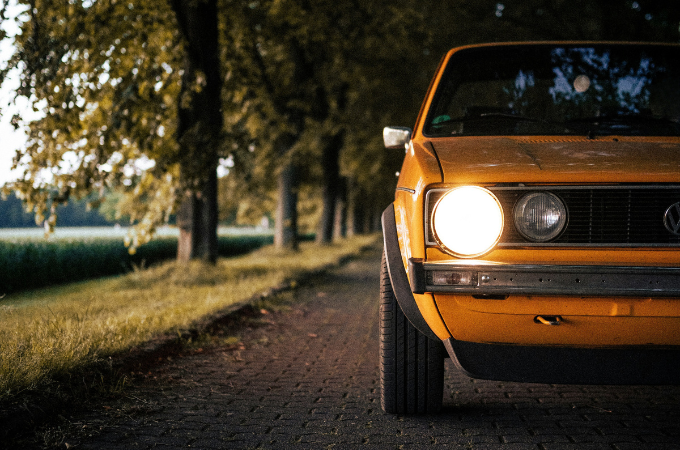
I.
I do not know how to respond when you tell me that your Father is a tree. Or when, your body convulsing and writhing so much that you shrink and your wholeness fits in the couch, you alarm me for the first time. You are so small. Perhaps you have always been small when placed in the shadow of your Father’s actions.
Breaking down, face hidden from view and speaking unintelligibly, you say, “Perhaps it’s a good thing, this.”
I don’t need to ask what this is—your Father has been many things in the course of your life, and has occupied many aspects of our lives, so it’s a little comforting that at his death you envision him as a tree: something that can grow as it dies. It’s anomalous this twist in your relationship, how by virtue of this, the roles you played in each other’s lives (or wished you played) are inverted and you’re now tasked with nurturing his growth and ensuring that he does not die. A tree that you can control, keep or discard from your life if you wish it.
II.
We’re on our way to your Father’s funeral when you recall the events of the past week, when you had to pick up the pieces of your grief from the corner where you wallowed with them, packed them neatly in your back pocket and pretended like things were alright. I have heard this story before. You told it to me when you came to my place unannounced and purged yourself of that day’s events without my consent to hear it. Such is the nature of our relationship.
“It happens with very little effort on my part that I remember my Dad with disdain and my Mother with pity,” you say suddenly, catching me off-guard as I make a turn. Whenever the subject of your Father arises, I have to choose which coat to wear: your friend or your therapist? Again, such is the nature of our relationship. We tiptoe around boundaries like a minefield, afraid to set ablaze what has led us to be on this ride to bury a man I’ve never met, not counting the times when you summon him to my presence in your drunken states.
I say nothing and allow you to continue.
“As his eldest son, I was told to accompany the Uncles to perform this ritual whereby we fetch his soul from the hospital where he died,” you chuckle, and turn to look at me, bloodshot redness in your eyes rocking me back to the enormity of this situation, and you tell me again that your Father is a tree. I have context now, no longer believing like I initially did that you were processing his death by imagining him as something else.
III.
You once told me that your Father would always shout, “We’re just going for a drive,” by the door every time he wanted to have a moment alone with you. It was an experience that stayed with you because of how simple and personal it was—it didn’t have to be something mind blowing or worth a change of clothes; you would just drive around the neighborhood for a couple of minutes in silence or with the radio on and it would be just as thrilling, or sometimes you would get ice creams from the local shop and have them in the car laughing and talking about whatever it was that was on your minds at the time. Then he would get out again and return with a bar of Cadbury chocolate for your Mother, a sort of appeasement for being left out of this boys’ club and you would head back home. It became your thing.
You remember these drives with a fondness that’s bittersweet as you relive the events of the past week when you arrived at the hospital with your Uncles early in the morning and performed the rites as you were instructed; standing over the bed where your Father slept for months after the cancer got the upper hand on him.
“Dad,” you said, with umlahlankosi, the buffalo thorn tree you’re expected to use to invite and coax his soul to come with you. “We have come to take you home and to your final resting place.”
One of the Uncles present put his hand on your shoulder and squeezed firmly, the only thing holding you from breaking, and anchoring you to this moment. “We ask that you come with us now, Hlamvelihle. We are leaving now.”
You had seen this done in the past and it was something that you’d never had to do because there was always someone older than you willing and experienced enough to do it; and you sit now in the chair next to me trying to correct a smile of pride you feel unworthy to claim, like by accepting the gift of honouring your Father you somehow betray yourself.
This is the longest I’ve been silent in our exchanges, and the way your body shivers and jerks to stop from crying reminds me of the first time we met all those years ago; you were a bundled ball of repression on the verge of imploding from all the pent-up resentment and undisclosed feelings. You were small then, too.
Getting out of the hospital with your Father’s soul in your hands, you were struck with the most outrageous of ideas as you tried to reconcile with your presence in that place with Uncles you hadn’t seen in years, and wondered if, during the course of your journey with umlahlankosi, they would allow you just one more chance to go on a drive with your Father. The idea seemed ridiculous and you imagined they would say No as this was something that’s simply not done.
“I wondered if they had it in them to defy generations of tradition and culture. If they had the heart to look at me and feel for a son who’s not had the best relationship with his Father and grant this request.”
“And they did?” I say, breaking your monologue.
“They did,” you pause for a bit, “It’s funny. It felt like all those years ago.”
IV.
I understand now how monumental the drives with your Father were. They carried with them major parts of your life: when he told you that he and your Mother were thinking of having another baby. When you, overwhelmed with the burden of carrying a secret bigger than you and a broken heart by yourself, told him about the boy you loved who felt he wasn’t brave enough to love you loudly in public as he did when you were alone in the library.
“Be patient with him,” your Father said solemnly, his eyes never leaving yours and your hands clasped tightly in his. “He’s young and scared. You’re both very young and don’t need to have everything figured out just yet.” Your Father never got to know this, but this conversation saved your relationship with the boy who will come to be your husband. That conversation taught you to approach a terrified boy with kindness, and you made him feel safe to do the unthinkable. Something many boys like you are never given space to do.
You remembered the drives with your Father with a fondness that is bittersweet as you buckled your seatbelt and placed the buffalo thorn tree on the passenger seat and said the line you hadn’t heard in all your adult life.
“Dad, we’re just going for a drive, okay?”
This line, for the longest time, had been corrupted by things you failed and refused to come to terms with, like the day the foundation of your life started to crack.
“Son, your Mother and I will not be having that baby after all.”
He tried to laugh it off, but you knew what he meant and didn’t need to ask him to tell you what had happened. You knew from the smiles and the giggles they shared whenever they thought you couldn’t see, or the whispers and the looks passed between them whenever a Pampers or Huggies advert came on that they’d tried and succeeded at it. But it did not stick.
Your Mother took it the worst, dying inside herself and withdrawing from the world and from you. From the small space in the door, you watched her go through the emotions almost every day when you went to check up on her. She never got out of bed, the wetness on her pillows drowning out the ghosts of what never came to be, grasping tightly onto her and preventing her from reconciling with the reality of moving on from the expectations.
On one of those drives, your Father stopped the car on the side of the road and dropped his head heavily on the steering wheel and sobbed, “I don’t know what else to do.”
The low and guttural sound you’d never heard coming from this man was sobering as you reached for his hand and held it, digging your fingers in his hair, willing him to calm down and gently lowering him to this moment so he could tell that you were there.
“There’s a study that was done. I think I told you about it—how not many married couples survive the loss of a child.”
“Yeah, it’s also the premise of that Will Smith movie.”
“Oh, yes. Hated that one.”
I manage to laugh for the first time since we got in this car, genuinely laughing from my gut all the way out. It’s uproarious, you’re unnerved for a moment.
“When my Dad told me that he and Mom were getting a divorce, it baffled me because I didn’t believe a miscarriage was something the study interrogated. It happened in the early stages and here I was, a whole person, also their child. I was still alive.”
“I understand.”
“But do you? Surely, they could’ve taken that love and reinvested it in me, or tried again at having another child at another time.”
V.
We’re a couple of minutes away from your Father’s house and we can already see the string of cars parked outside. I am mentally assessing where to park when, as though you can read my mind, you place your hand firmly on mine on the steering wheel gently and say, “I don’t think I’m ready to be here yet. Can we just drive for a bit longer?”
We continue driving in silence when a moment later, you say almost to no one in particular, “What does it say about me that I considered myself an orphan when my Mother died, and now that I really am an orphan, I suddenly can’t breathe?”
You appear to be here and not here at the same time, pointing at something I do not care to look at because in this limbic state you have chosen to surrender to, you’re no use to either of us. You continue, “I had never been back to those places my Dad and I took on our drives before I went there with umlahlankosi. It had been years since we did that. But somehow, it felt like time had swallowed me up, and I was back there.
“I was that child again, the one who still had a Father.”
Photo by Maurice Sahl on Unsplash



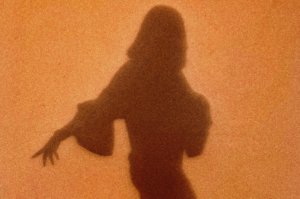
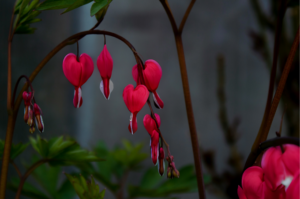
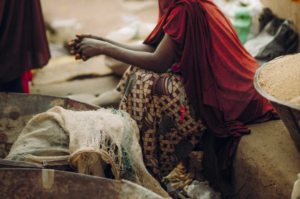
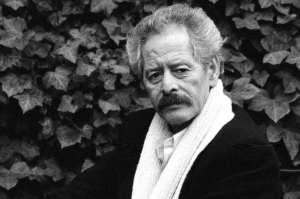
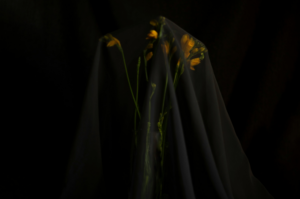
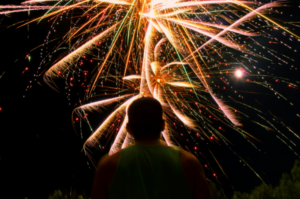

COMMENTS -
Reader Interactions